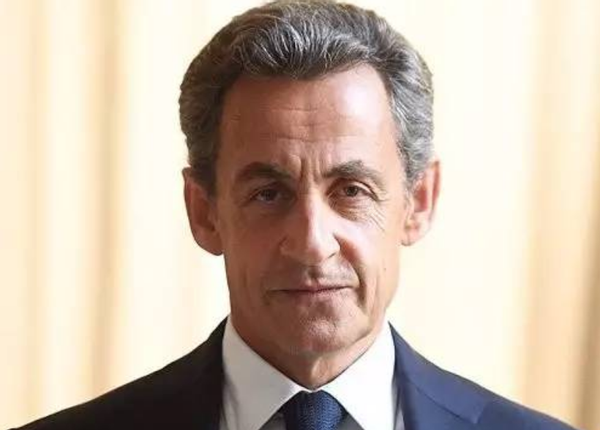The former president of France, Nicolas Sarkozy, has been sentenced today to three years in prison. Two are suspended, but one year is not. He was convicted of trying to bribe a judge. Sarkozy's former lawyer also received a similar sentence, as did that judge. NPR's Eleanor Beardsley is following the story. Hey there, Eleanor.
ELEANOR BEARDSLEY, BYLINE: Hi, Steve.
INSKEEP: What was the case that got Sarkozy in trouble?
BEARDSLEY: Well, it's kind of a crazy case. So what got him in trouble was in 2007, there were rumors, allegations that he had received illegal campaign financing for his successful presidential bid — he was president from 2007 to '12 — from none other than Libyan strongman Moammar Gadhafi — suitcases of cash. So it was never proved, but it was being investigated in 2014. And Sarkozy and his former chief of staff were put under wiretaps. And during that time, investigators discovered another possible illegal campaign financing from L'Oreal billionaire Liliane Bettencourt. And so then there became two cases of illegal financing possible.
And then they discovered a third person who was talking to Sarkozy's lawyer, a certain Paul Bismuth. And this Paul Bismuth turned out to be Nicolas Sarkozy himself, who feared maybe being put under a wiretap, so got another phone and made up a pseudonym and had all of these conversations with his lawyer about getting information about this bribery, you know, these cases, getting inside information. And in return, they would give this judge a plum posting. They would help him get a plum posting in Monaco.
INSKEEP: Wow.
BEARDSLEY: So this is finally coming to a head, yes.

INSKEEP: So Sarkozy's bribe, according to the conviction, was offering the judge a job in exchange for information about investigations of Sarkozy. What does he say about these charges?
BEARDSLEY: Well, he says, you know — they said there was a pact of corruption. He absolutely denies it. He says it's a witch hunt. And we're hearing that he is going to appeal these charges. He denies it.
INSKEEP: Well, does...
BEARDSLEY: But he doesn't deny being Paul Bismuth and talking to his lawyer.
INSKEEP: I'll be darned. Well, does that mean — you say he's going to appeal. Does that mean he's likely to spend a day in jail?
BEARDSLEY: We don't know. But there's — French media is talking about possible ankle — because there was a three-year sentence he was given. It's only the second time that a French president has been, you know, convicted of a crime. The first one was Jacques Chirac. He had an illegal job scheme when he was mayor of Paris, but he didn't do any jail time. Yes, he could do jail time because one year is a hard prison term. Two of the years are suspended sentence. But there is talk of possibly an ankle bracelet at home. But he's going to appeal. So we're not at that point yet. But, yeah, he possibly could do some jail time.
INSKEEP: I'm just thinking about the fact that an American former president up to this point has not been put in prison. That would be seen as an extraordinary step. What is the political effect of the possibility that Sarkozy could end up in prison?
BEARDSLEY: I mean, it's pretty shocking. If we were to see Sarkozy spend time in prison, it would be absolutely shocking. But I can tell you it's not like — this is not some earth-shattering moment because this scandal has been following him since 2007. It's sort of part of his persona now. So it's not shaking up, really, the political scene. He was never going to run again. But exactly like you said, if he were to spend time in jail, that would be very, very significant.
INSKEEP: Well, Eleanor, we'll keep listening for updates. Thanks so much.
BEARDSLEY: Thank you, Steve.
INSKEEP: NPR's Eleanor Beardsley is in Paris.












